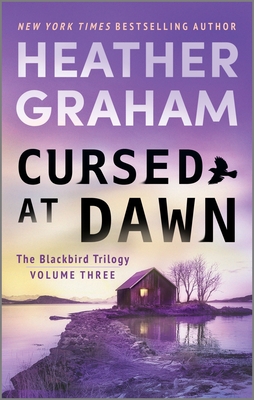 Cursed at Dawn: A Novel (The Blackbird Trilogy, 3) by Heather Graham
Cursed at Dawn: A Novel (The Blackbird Trilogy, 3) by Heather Graham Format: eARC
Source: supplied by publisher via Edelweiss
Formats available: hardcover, large print, paperback, ebook
Genres: paranormal, suspense, thriller
Series: Blackbird Trilogy #3
Pages: 304
Published by Mira on August 22, 2023
Purchasing Info: Author's Website, Publisher's Website, Amazon, Barnes & Noble, Kobo, Bookshop.org, Better World Books
Goodreads
Dracula lives—and he’s hunting for his bride.
Vampires may not walk among us, but FBI agents Della Hamilton and Mason Carter know real monsters exist. They’ve witnessed firsthand the worst humankind has to offer. They’re still catching their breaths after the apprehension of two such monstrous killers when they’re met with horrific news. Stephan Dante, the self-proclaimed king of the vampires, has escaped from prison, followed only by a trail of blood.
All too familiar with Dante’s cruelty, Della and Mason know the clock is ticking. But as Dante claims more victims, a chilling message arrives. The vampire killer seeks his eternal bride—Della herself. Playing into Dante’s desires might be the only way to stop the carnage once and for all, assuming they can outwit him. Della is confident the agents have the upper hand, but Mason knows every gamble runs the risk of not paying off, and this time, the consequences could be deadly.
My Review:
The story of the Blackbird Trilogy, Whispers at Dusk, Secrets in the Dark and this final book in the trilogy, Cursed at Dawn, is the story of one very long, dark night for the members of Blackbird – at least in the metaphorical sense because the action in this paranormal romantic suspense series takes place over more than one night – and on more than one continent.
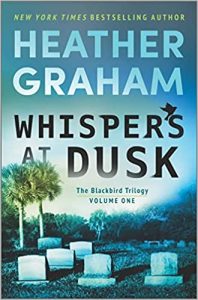 When the series began in Whispers at Dusk, the original members of Blackbird, Special Agents Della Hamilton and Mason Carter were tasked with tracking down a serial killer calling himself the ‘King of the Vampires’ who led them on a not-so-merry chase from the bayous of Louisiana to Castle Bran in Transylvania and all points in between until he was brought to justice.
When the series began in Whispers at Dusk, the original members of Blackbird, Special Agents Della Hamilton and Mason Carter were tasked with tracking down a serial killer calling himself the ‘King of the Vampires’ who led them on a not-so-merry chase from the bayous of Louisiana to Castle Bran in Transylvania and all points in between until he was brought to justice.
Or so they believed. Although maybe it was more like hoped even then.
The second book in the series, Secrets in the Dark, takes place while Stephen Dante was awaiting trial in a secure U.S. facility. Blackbird, now a fully international team, traveled to London to track down one of Dante’s apprentices, a man who decided that since he couldn’t beat the so-called ‘King of the Vampires’ using the ‘King’s’ own tricks of the trade he’d be better off appropriating a much older title from a much scarier killer, and took to calling himself the ‘King of the Rippers’ as he stalked Whitechapel and decorated the same streets with a fresh coating of blood and gore.
Blackbird caught him as well, and was taking a few days of well-earned R&R when they learned that Stephen Dante had orchestrated his escape from prison and was on the loose yet again, using his tried and true methods of charming or bribing a new network of acolytes and informations, stalking a new brace of beauties he intended to kill, and yet again with Agent Della Hamilton in his sights with an eye to making her his final victim.
Only this time he’s come to Edinburgh, Scotland, a city full to the brim with history, mystery and magic, abounding in ghost stories and banshee myths, with a twisty layers of buried geography that Dante knows like the back of his hand.
But so do the ghosts of Scots long ago, haunting the city from all the way back to the time of William Wallace and Robert the Bruce, who are more than willing to help the living fight one more righteous battle against evil.
Dante believes he is all-seeing, all-knowing and all-powerful, but the ghosts level the playing field for Blackbird with powers that he can neither imagine nor counter. Even as they help to bring his reign of terror to a crashing end.
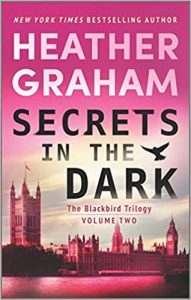 Escape Rating A-: I’ve enjoyed the entire Blackbird Trilogy, and certainly have been caught up in each entry as soon as I started it, but I liked this one just a tick better because we spent next to no time in Stephen Dante’s head, nor that of any of his proteges. His is not the point-of-view I want to experience. I want to see the case through the investigators’ eyes to watch as the solution fits and starts and eventually falls into place. I don’t need to see the bodies drop to be caught up in the drama and terror, I just need to know they’ve fallen – which we certainly do in this story.
Escape Rating A-: I’ve enjoyed the entire Blackbird Trilogy, and certainly have been caught up in each entry as soon as I started it, but I liked this one just a tick better because we spent next to no time in Stephen Dante’s head, nor that of any of his proteges. His is not the point-of-view I want to experience. I want to see the case through the investigators’ eyes to watch as the solution fits and starts and eventually falls into place. I don’t need to see the bodies drop to be caught up in the drama and terror, I just need to know they’ve fallen – which we certainly do in this story.
Although it probably helped a bit that there are few actual deaths in this entry in the series. Dante and particularly his minions, keep snatching people but he’s made too many mistakes, he’s let the Blackbird team, especially Della Hamilton, get to know him a bit too well, and this time around they manage to get there in time to save people considerably more of the time.
Which makes this one more about the psychological terror that they know he’s going to strike again – and has and does – than the actual horror of quite so many of his staged tableaux of pale, cold, bloodless, ‘sleeping’ beauties.
(But speaking of what has come before, although the Blackbird Trilogy is an offshoot of the Krewe of Hunters series, you don’t have to read that to get into this. There’s just the right amount of catching up infodumping that Cursed at Dawn probably stands alone – but it would be better to start with Whispers at Dusk to see the team come together.)
The Blackbird Trilogy is a combination of paranormal romance and romantic suspense, and it’s a combo that holds a near and dear place in my reading heart. We began with watching Della and Mason find each other, set against the backdrop of the team coming together and following Dante’s trail of blood and death. As the trilogy has continued, it’s been fun to watch more members get swept into the action, as they band together to track an intelligent, organized and elusive – also illusive – killer.
The trilogy is riveting from its bloody beginning to its killer’s crushing end. Justice has been served after a harrowing investigation, and it’s righteous. I wouldn’t mind seeing more of Blackbird, and I know I’ll pick up the Krewe of Hunters again whenever I’m looking for more deliciously chilling paranormal romantic suspense.


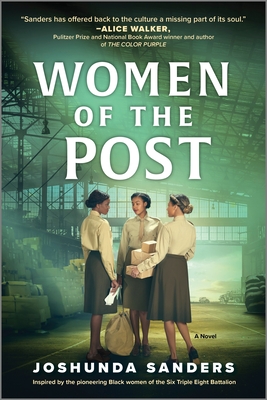 Women of the Post by
Women of the Post by 
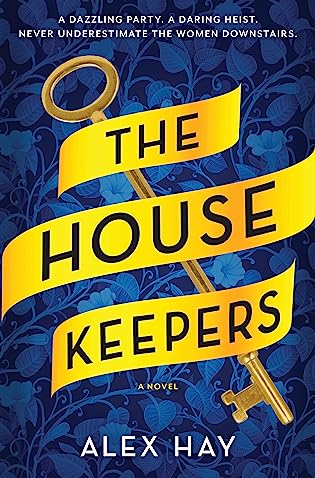 The Housekeepers by
The Housekeepers by  Escape Rating B: The Housekeepers is all about the heist. Which means that the characters take a back seat to the caper on this thrill ride, and the story is more about putting the operation together and taking the target apart than it is about the gang who are pulling it off.
Escape Rating B: The Housekeepers is all about the heist. Which means that the characters take a back seat to the caper on this thrill ride, and the story is more about putting the operation together and taking the target apart than it is about the gang who are pulling it off.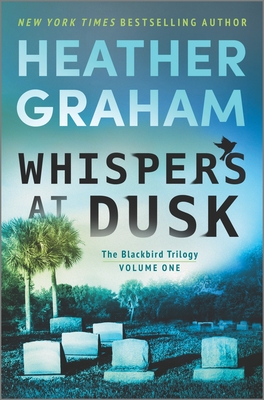 Whispers at Dusk: A Novel (The Blackbird Trilogy, 1) by
Whispers at Dusk: A Novel (The Blackbird Trilogy, 1) by 
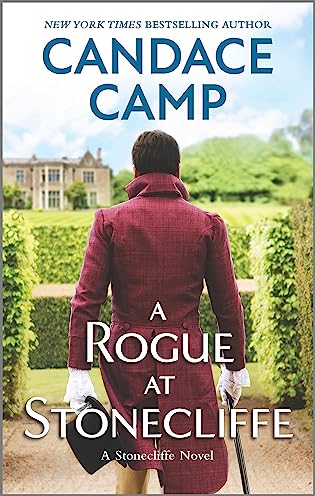 A Rogue at Stonecliffe (Stonecliffe, #2) by
A Rogue at Stonecliffe (Stonecliffe, #2) by 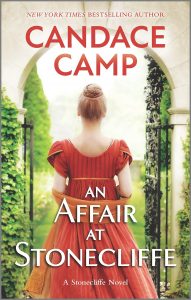 Fictionally speaking, the Napoleonic Wars are a gift that just keeps on giving. And taking, as happens in this second book in the
Fictionally speaking, the Napoleonic Wars are a gift that just keeps on giving. And taking, as happens in this second book in the  Famous in a Small Town by
Famous in a Small Town by  I picked up this book because I loved the beautifully “sad fluff” of the author’s earlier novel,
I picked up this book because I loved the beautifully “sad fluff” of the author’s earlier novel, 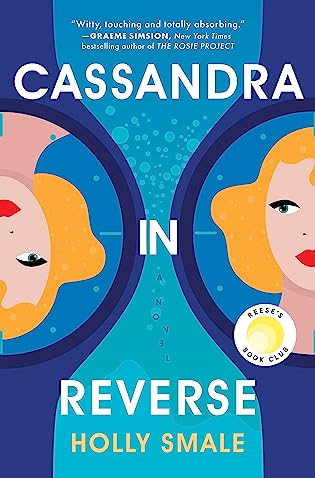 Cassandra in Reverse by
Cassandra in Reverse by  About the Author:
About the Author: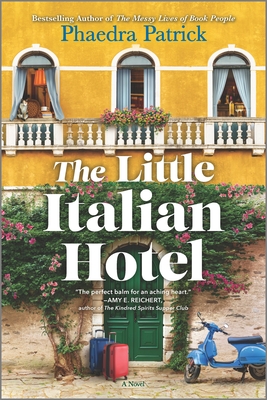 The Little Italian Hotel by
The Little Italian Hotel by 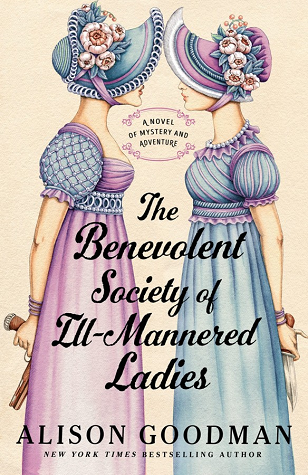 The Benevolent Society of Ill-Mannered Ladies (The Ill-Mannered Ladies, #1) by
The Benevolent Society of Ill-Mannered Ladies (The Ill-Mannered Ladies, #1) by 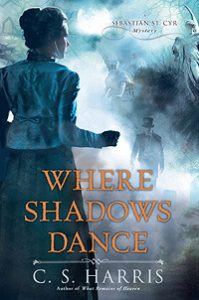 Both the Colebrook sisters and St. Cyr are conducting their investigations during the Regency period, in this book specifically 1812 – which is also the year in which books 4 through 8 of the St. Cyr series (
Both the Colebrook sisters and St. Cyr are conducting their investigations during the Regency period, in this book specifically 1812 – which is also the year in which books 4 through 8 of the St. Cyr series (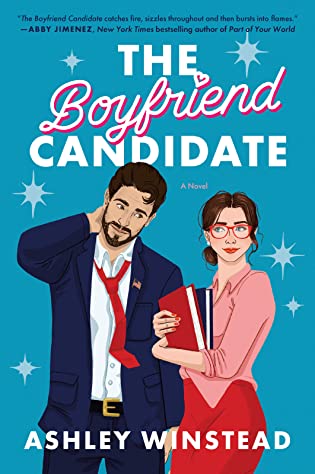 The Boyfriend Candidate by
The Boyfriend Candidate by